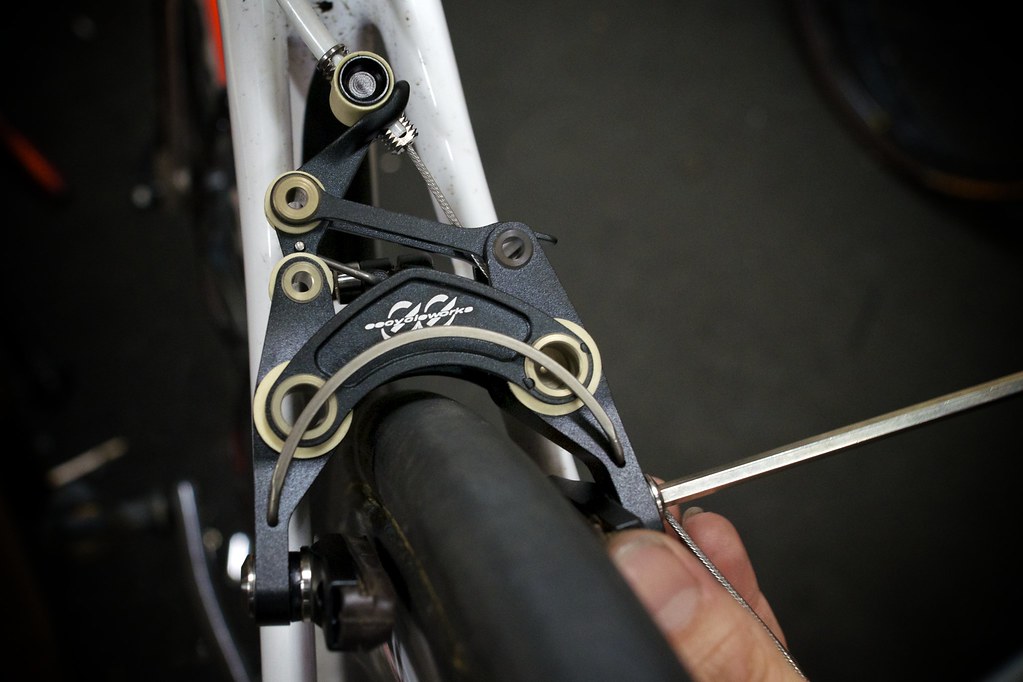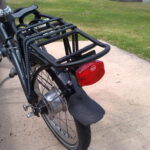Tired of the annoying squeak from your bike brakes? How to stop bike brakes from squeaking is a vital question for both casual riders and seasoned professionals alike.
Certainly, while the squeak may be bothersome, its significance extends far beyond mere annoyance. This piercing noise acts as a clear warning, indicating potential problems within your braking system.
The issue goes beyond mere inconvenience; it directly threatens both the safety and overall quality of your cycling ventures. Ensuring your brakes are in top condition isn’t solely about ending irritation; it’s fundamental for ensuring reliable stopping power.
So, let’s figure out how to stop bike brakes from squeaking.
What Type of Brakes Do You Have?
Regarding bicycle brakes, two primary categories dominate the market: rim and disc braking systems.

Each type has its characteristics:
Rim Brakes
These are the most common braking systems for bicycles. These braking systems operate by applying friction directly to the outer rim of the wheel when the rider squeezes the brake levers.
While there are variations of rim brakes, including caliper and V brakes, the common feature among them is the contact with the wheel’s rim. They are cost-effective and simple.
They are relatively easy to maintain and offer predictable braking performance in most riding conditions. However, they may have limitations in wet or muddy environments, as water and debris on the rim can reduce braking efficiency.
Disc Brakes
Disc brakes, on the other hand, represent a modern and increasingly popular braking technology. When disc brakes are used, the rotor attached to the wheel hub performs the braking instead of the rim.

Whether it’s mechanical disc or hydraulic disc brakes, the fundamental principle remains the same: the pads engage with the rotor to slow down or stop the bike.
Disc braking systems are known for their exceptional stopping power and modulation, making them a preferred choice for many cyclists, especially in challenging conditions. They excel in wet, muddy, or snowy terrains where the rim braking mechanism may struggle.
Hydraulic disc brakes, in particular, provide precise control and consistent performance.
What Causes Squeaky Brakes?
Having squeaky brakes can be both annoying and worrying for cyclists. Whether you have rim or disc brakes on your bicycle, understanding the causes of a squeaky braking system can help you address the problem effectively.

In this guide, we’ll delve into the reasons behind squeaky brakes for both types.
Rim Brakes
Rim brakes are a common type, especially on road bikes. Here are some common reasons why rim brakes might squeak:
Contaminated Brake Pads
One of the leading causes of squeaky rim brakes is contaminated pads. Over time, dust, dirt, and debris can collect on the pads, minimizing their efficiency and producing squeaking when used.
Worn or Glazed Brake Pads
Pads might lose their ability to grip the rim smoothly when they wear down or get glazed as a result of extreme heat. This can lead to squeaky braking when the pads fail to engage smoothly.

Misalignment
If the pads are not properly aligned with the rim, they may make uneven contact, leading to squeaking. Proper alignment is crucial for smooth and silent braking.
Wet or Rainy Conditions
Rim brakes may squeak more in wet or rainy conditions because water on the rim’s surface can reduce friction, causing noise when braking.
Disc Brakes
Whether mechanical or hydraulic, they are known for their consistent performance. However, they can also develop squeaking issues, and here’s why:
Contaminated Brake Pads or Rotor
Just like with rim brakes, contaminants like dirt, oil, or road grime can find their way onto the pads or rotors. This contamination can lead to noisy braking.
Pad Glazing
Over time, the pads in disc brakes can become glazed due to high heat. This can reduce their ability to grip the rotor smoothly and result in squeaky braking.

Rotor Warping
If the rotor becomes warped or unevenly worn, it can cause uneven contact with the pads, leading to squeaking.
Bedding-In Process
When new pads or rotors are installed, they often require a bedding-in process to properly seat them. Failure to do this can lead to squeaky brakes initially.
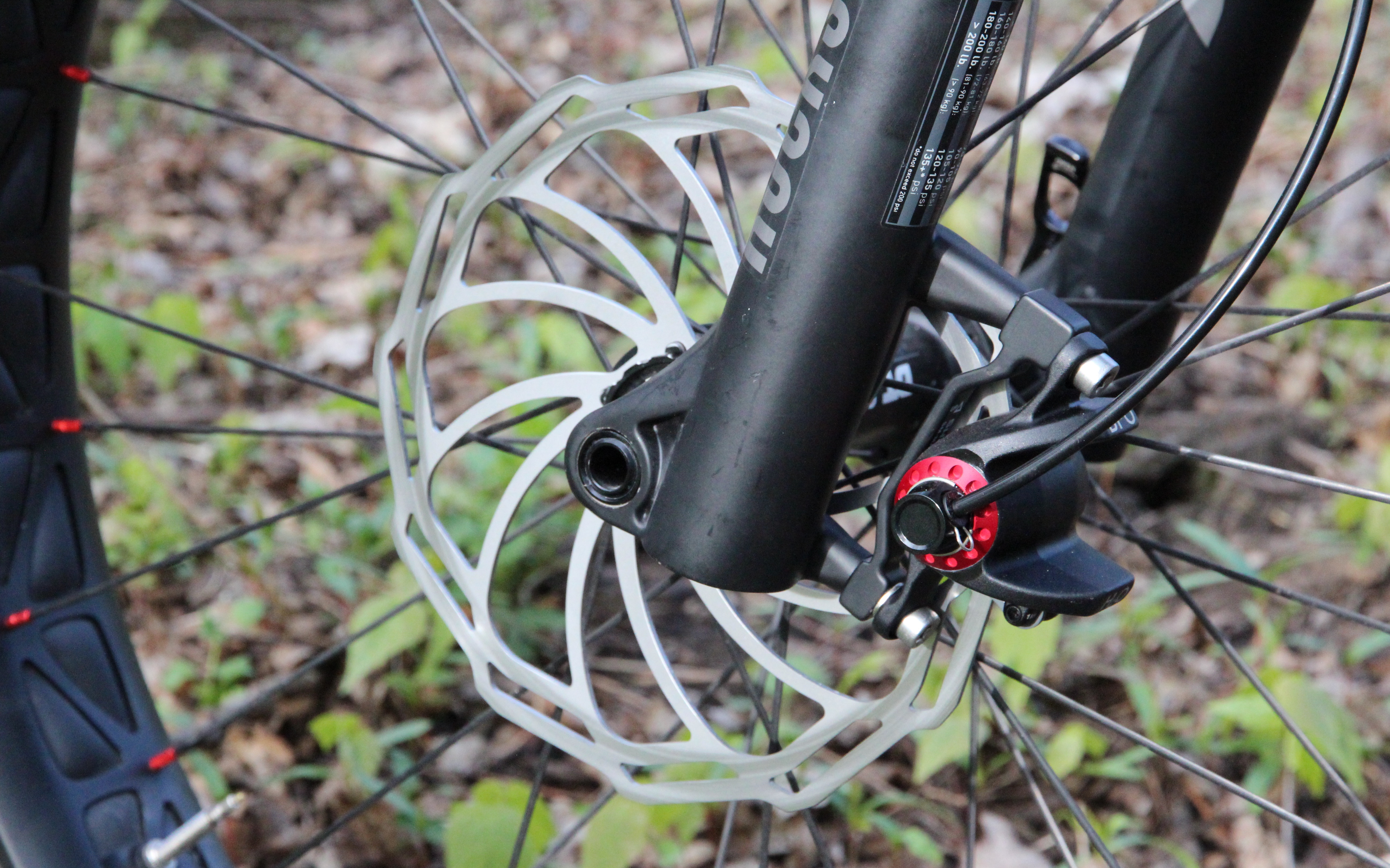
Regardless of the type of braking system you have, there are some preventive measures and solutions. Ultimately, squeaky braking can be a common issue for cyclists, whether they have rim or disc brakes.
Understanding the causes and implementing preventive measures can help you enjoy quieter and more efficient braking. If the problem persists despite your efforts, it’s advisable to consult a professional bike mechanic for further inspection and maintenance.
How to Stop Bike Brakes from Squeaking?
How to Stop Squeaky Rim Brakes?
Clean the Brake Pads
Remove the wheel and inspect the pads. If you notice any dirt, debris, or glazing, it’s time for a cleaning. Use a mild abrasive like sandpaper to gently rub the pad surfaces to remove contaminants and restore their grip.
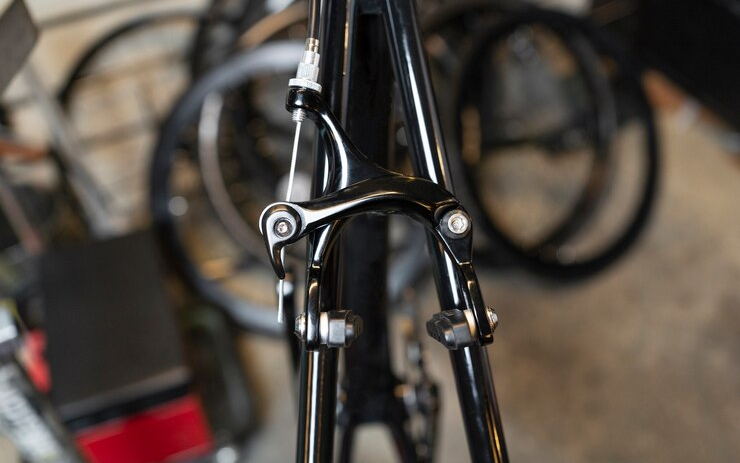
Align the Pads
Misaligned pads can lead to squeaking. Ensure that the pads are properly aligned with the rim’s braking surface. If necessary, adjust them to ensure even contact.
Toe-In Adjustment
To further improve brake performance and reduce squeaking, you can try a toe-in adjustment. This involves angling the front of the pad slightly towards the rim, allowing for better initial contact.
Use High-Quality Brake Pads
Invest in high-quality pads, as they tend to be less prone to squeaking. Choose pads that are compatible with your rim brake system.
Clean the Rims
Over time, rims can accumulate dirt and residue, affecting braking performance. Clean the rim’s braking surface using a gentle abrasive or specialized rim cleaner to remove any buildup.
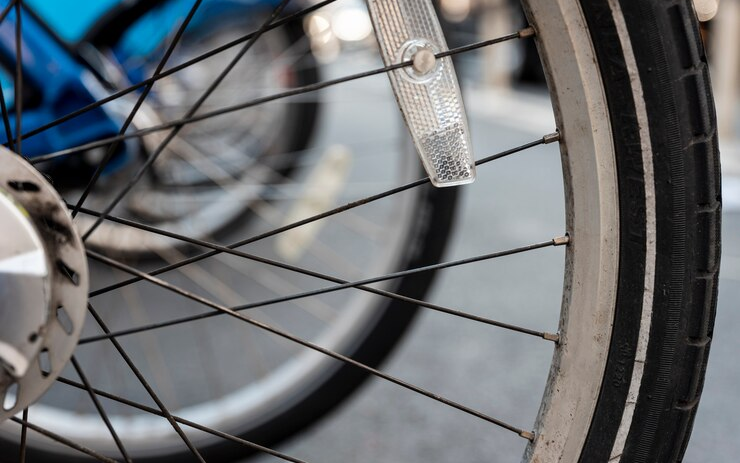
How to Stop Squeaky Disc Brakes
Clean the Rotors
Begin by inspecting the brake rotors. If you notice any contamination, clean them using isopropyl alcohol and a clean cloth. Be sure to thoroughly remove any oil, dirt, or debris.
Bed-In New Brake Pads
If you’ve recently replaced your disc pads or rotors, they may require a bedding-in process. Follow the manufacturer’s recommendations to ensure proper seating of the new components.
Check for Warping
Inspect the rotors for warping or uneven wear. Warped rotors can cause squeaking. If you find any issues, consider replacing or resurfacing the rotors.
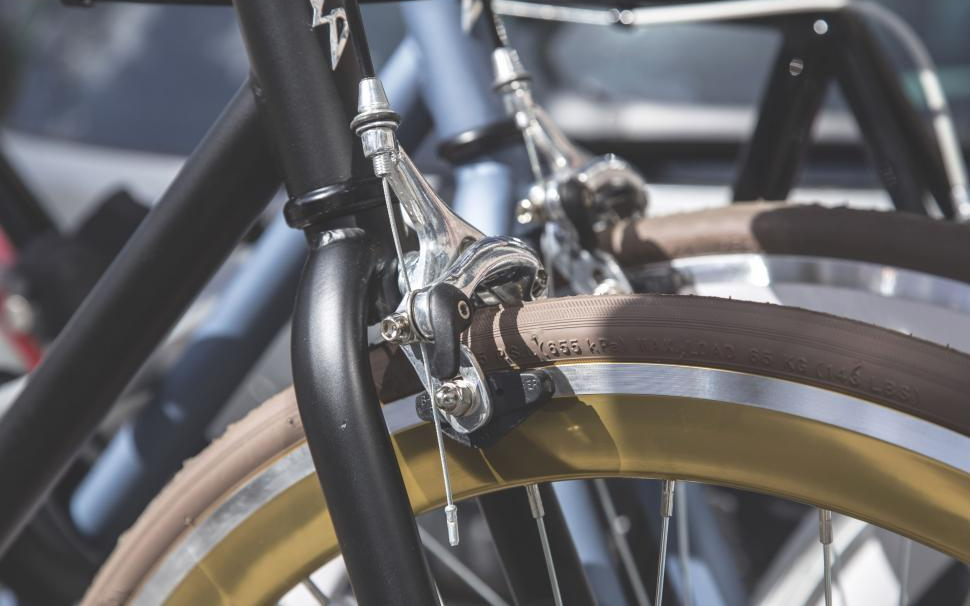
Adjust Caliper Alignment
Brake calipers and rotors should be aligned properly. Adjust it if necessary to achieve even contact between the pads and rotor.
Upgrade to Organic Pads
Metallic pads tend to be louder than organic pads. Consider switching to organic pads if you’re experiencing persistent squeaking.
Preventative Measures
Regular Maintenance & Cleaning
Regular maintenance and cleaning are crucial for the longevity and performance of your bicycle’s braking system. Keeping your bike clean, inspecting pads, and lubricating moving parts will ensure your braking system functions smoothly and reliably.
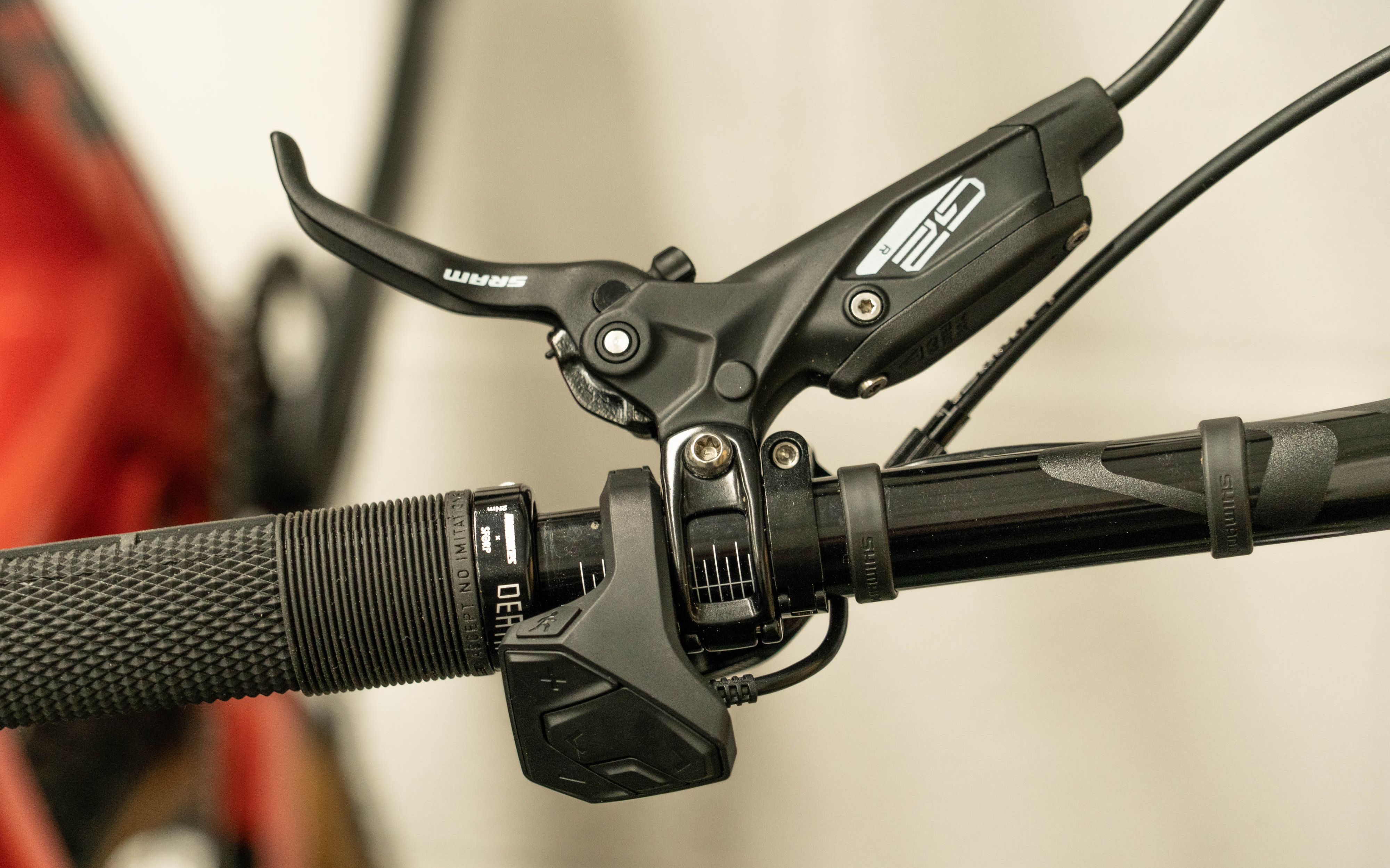
Proper Storage to Avoid Contamination
Where you store your bike matters. Storing it indoors or in a dry, sheltered area can prevent moisture and contaminants from affecting your braking system. Consider using bike covers or storage solutions to protect your bike from dust and dirt.
Using Quality Brake Pads & Rotors
Investing in high-quality brake components is a smart choice. Quality brake pads that suit your riding style and conditions offer better durability and stopping power. Similarly, quality rotors for disc brakes can resist warping and ensure consistent braking.
Periodic Checks for Alignment & Wear
Regular checks and adjustments are essential for maintaining reliable braking. Ensure that your brake pads are properly aligned for even contact with the rims or rotors.
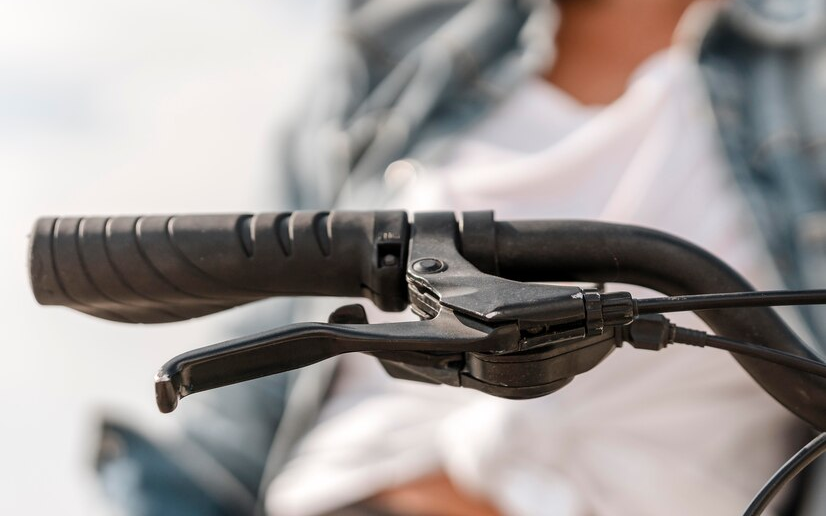
Inspect brake cables, housings, and levers for wear and replace damaged components promptly. Pay attention to the feel of your brake levers, as a spongy feel may indicate the need for adjustments or maintenance.
Conclusion
Fixing bike brake squeaks isn’t just about ensuring a peaceful ride, it’s also a matter of safety. Therefore, it’s crucial to know how to stop bike brakes from squeaking.
You much maintain your bike regularly, as proper maintenance and inspection are important for optimal cycling performance. Don’t let a minor squeal escalate into a major issue.
Remember, a well-maintained bike not only rides better but also keeps you safer on the road. Pledge today to silence those squeaks and ride with confidence.
FAQs
WD-40 isn’t recommended for brake components. Use a dedicated brake cleaner or consult a bike shop for a squeaky braking system.
No, car brake oil is not suitable for bikes. Always use the recommended brake fluid specified by your bicycle’s manufacturer.
New bike brakes may squeak initially due to pad bedding. It usually improves with use, but if it persists, consult a bike mechanic.
Brake pad lifespan varies based on usage and conditions. On average, they can last 1,000-5,000 miles, but regular inspection is essential.

